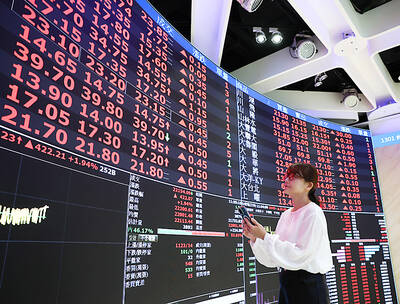IKEA Group on Thursday announced a deal to acquire on-demand help start-up TaskRabbit as the world’s largest furniture retailer grabbed a seat in the online sharing economy.
TaskRabbit provides an online platform where people can hire freelance labor for anything from fixing leaky plumbing or assembling furniture to picking up groceries or waiting in lines outside Apple Inc stores to buy iPhones on launch days.
Since being founded nine years ago, San Francisco-based TaskRabbit has spread to 40 US cities and London, the company said.

Photo: Bloomberg
“Through our unique on-demand platform, TaskRabbit is making life better for both consumers and ‘taskers,’” TaskRabbit chief executive officer Stacy Brown-Philpot said.
TaskRabbit expected the merger with IKEA to result in a broader array of services being offered and the potential for taskers to make more money.
Financial terms of the acquisition were not disclosed.
TaskRabbit is to continue to operate as an independent company, said IKEA, which has its headquarters in the Netherlands.
Late last year, IKEA successfully tested making TaskRabbit talent available to help IKEA customers assemble newly bought furniture.
“In a fast-changing retail environment, we continuously strive to develop new and improved products and services to make our customers’ lives a little bit easier,” IKEA chief executive Jesper Brodin said in a joint release. “Entering the on-demand, sharing economy enables us to support that.”
IKEA planned to make TaskRabbit services available to customers after the acquisition is completed.

UNCERTAINTIES: Exports surged 34.1% and private investment grew 7.03% to outpace expectations in the first half, although US tariffs could stall momentum The Chung-Hua Institution for Economic Research (CIER, 中華經濟研究院) yesterday raised its GDP growth forecast to 3.05 percent this year on a robust first-half performance, but warned that US tariff threats and external uncertainty could stall momentum in the second half of the year. “The first half proved exceptionally strong, allowing room for optimism,” CIER president Lien Hsien-ming (連賢明) said. “But the growth momentum may slow moving forward due to US tariffs.” The tariff threat poses definite downside risks, although the scale of the impact remains unclear given the unpredictability of US President Donald Trump’s policies, Lien said. Despite the headwinds, Taiwan is likely

READY TO BUY: Shortly after Nvidia announced the approval, Chinese firms scrambled to order the H20 GPUs, which the company must send to the US government for approval Nvidia Corp chief executive officer Jensen Huang (黃仁勳) late on Monday said the technology giant has won approval from US President Donald Trump’s administration to sell its advanced H20 graphics processing units (GPUs) used to develop artificial intelligence (AI) to China. The news came in a company blog post late on Monday and Huang also spoke about the coup on China’s state-run China Global Television Network in remarks shown on X. “The US government has assured Nvidia that licenses will be granted, and Nvidia hopes to start deliveries soon,” the post said. “Today, I’m announcing that the US government has approved for us

When Lika Megreladze was a child, life in her native western Georgian region of Guria revolved around tea. Her mother worked for decades as a scientist at the Soviet Union’s Institute of Tea and Subtropical Crops in the village of Anaseuli, Georgia, perfecting cultivation methods for a Georgian tea industry that supplied the bulk of the vast communist state’s brews. “When I was a child, this was only my mum’s workplace. Only later I realized that it was something big,” she said. Now, the institute lies abandoned. Yellowed papers are strewn around its decaying corridors, and a statue of Soviet founder Vladimir Lenin

The National Stabilization Fund (NSF, 國安基金) is to continue supporting local shares, as uncertainties in international politics and the economy could affect Taiwanese industries’ global deployment and corporate profits, as well as affect stock movement and investor confidence, the Ministry of Finance said in a statement yesterday. The NT$500 billion (US$17.1 billion) fund would remain active in the stock market as the US’ tariff measures have not yet been fully finalized, which would drive international capital flows and global supply chain restructuring, the ministry said after the a meeting of the fund’s steering committee. Along with ongoing geopolitical risks and an unfavorable